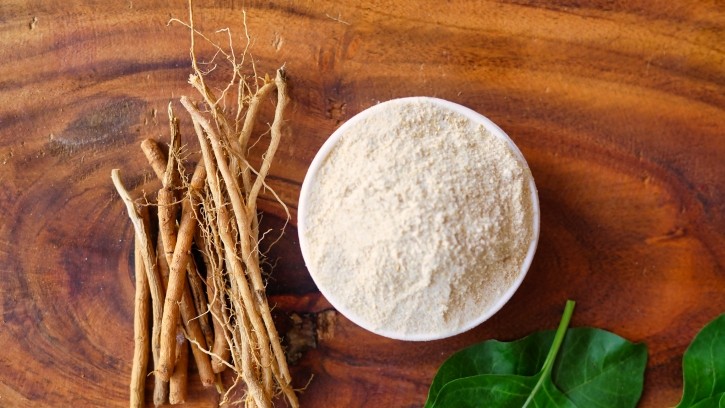AHP responds to claims of ashwagandha abortifacient effects

In May of 2020, Danish Food Authorities issued a risk assessment of ashwagandha recommending against its use due to its purported ability to induce miscarriage. Other European countries followed, calling for independent risk assessments that have called into question the safety of the herb when used in pregnancy.
As its primary reference, the Danish authority cited an ashwagandha monograph of the World Health Organization (WHO) (2009) that in turn cited the AHP Ashwagandha Root Monograph and Therapeutic Compendium (2000).
However, the AHP has responded explaining the report's citation of the WHO monograph is an example of citation distortion, as it did not fully articulate the AHP review, which actually stated the following: “There are conflicting reports regarding the use of ashwagandha in pregnancy. Large but undefined doses have been reported to possess abortifacient activity (Chadha 1976; Svoboda 1992). Of several ayurvedic practitioners consulted, none reported having observed an abortifacient activity clinically. Conversely, ashwagandha has, traditionally and in modern ayurvedic practice, been used to prevent miscarriage and stabilize the fetus (Tirtha 1998).”
Repeated uncritical citation
Roy Upton, President of the AHP explained: "Misrepresentation of the AHP monograph has been repeatedly [referenced] uncritically resulting in the misconception that ashwagandha root is potentially unsafe."
A potential for an abortifacient effect was similarly reported in the first edition of the Botanical Safety Handbook (BSH; McGuffin et al. 1997), which provides a safety classification for ashwagandha of 2b: Not to be used in pregnancy unless otherwise recommended by a qualified health care practitioner, and a “Notice” as an abortifacient. The 2b classification remained in the second edition of BSH but the Notice as an abortifacient was removed due to the lack of documentation that such an action existed.
Since the earlier publications of both AHP and BSH, a comprehensive review of the traditional and scientific literature and all accessible citations that made any mention of ashwagandha as an abortifacient was conducted. Additionally, the opinion of experienced Ayurvedic medicine practitioners from India and North America was solicited.
"Neither the Expert Advisory Council for the revision of BSH (third edition), nor experts involved in the AHP revision, found any traditional or scientific documentation that ashwagandha possesses an abortifacient activity," Upton said.
"The earlier cautions regarding the use of ashwagandha in pregnancy and its claimed use as an abortifacient were based on anecdotal reports from the ethnobotanical literature that provided no indication such an effect was evident. Furthermore, when such reports were made, the overwhelming majority referred to above-ground parts... not the root, the portion used almost exclusively.
"Similarly, a review of the traditional and scientific data reveals no pharmacological mechanisms that would indicate an abortifacient effect."
The BSH safety classification was revised in 2023 to the current safety classification of 1: Herbs that can be safely consumed when used appropriately. Upton confirmed an upcoming revision of the AHP Monograph and Therapeutic Compendium will reflect this as well.
In addition, subsequent to safety concerns raised in the European Union, the Ministry of AYUSH (Government of India) released a Safety Dossier (2.0; 2024) noting the lack of abortifacient activity of ashwagandha root and citing all clinical and pre-clinical data that have investigated the use of ashwagandha and its preparations in pregnancy.
One toxicity investigation in rats demonstrated a no observed adverse effect Level of ashwagandha root extract (KSM-66) of 2,000 mg/kg.
Upton added: "The available human trials reported no maternal or fetal toxicity in pregnant women using ashwagandha preparations. No other clinical or pre-clinical investigations revealed an abortifacient activity."
He concluded: "While adequate caution when using any substance during pregnancy is warranted, based on a critical and comprehensive review of the traditional and modern literature, as well as the opinion of the majority of experts, there is no evidence of an abortifacient effect of ashwagandha root."
Experts rally
Several industry experts have rallied behind this ingredient to argue its safety, with the majority noting there is a lack of expertise or critical research behind the European authorities' health and safety reports. They argue this lack of expertise has led to conflation of the health impacts of the root, stem and leaves of the plant and ignorance to the potential issue of contamination in tested products.
Responding to a recent damning safety review by the French Agency for Food, Environmental and Occupational Health & Safety (ANSES), Shaheen Majeed, global managing director and CEO at Sabinsa, supplier of Shagandha ashwagandha, stated the ingredient has traditionally be used to support fertility.
"There is a lack of substantial scientific evidence supporting the claims of poisoning of liver damage when using properly standardized and high quality ashwagandha supplements," he said.
He pointed out the U.S. Pharmacopoeia-National Formulary (USP-NF) monograph provides a comprehensive framework for standardization, safety limits, quality control, evidence-based guidelines, transparency and monitoring. He argued that any supplier adopting these standards will automatically mitigate any and all of ANSES' concerns.
"The problems attributed to ashwagandha are often due to substandard products lacking proper standardization and quality control," he said. "A robust supply chain and strict adherence to quality standards are vital in providing consumers with effective and safe ashwagandha products.
"Instead of imposing restrictions on the use of this well-known and safe herb, we believe it would be more beneficial to increase vigilance in preventing substandard or contaminated products from entering the market. This can be achieved by involving key players from regulatory bodies and the industry to enhance education on the quality, standardization and supply chain management of this unique herb."












